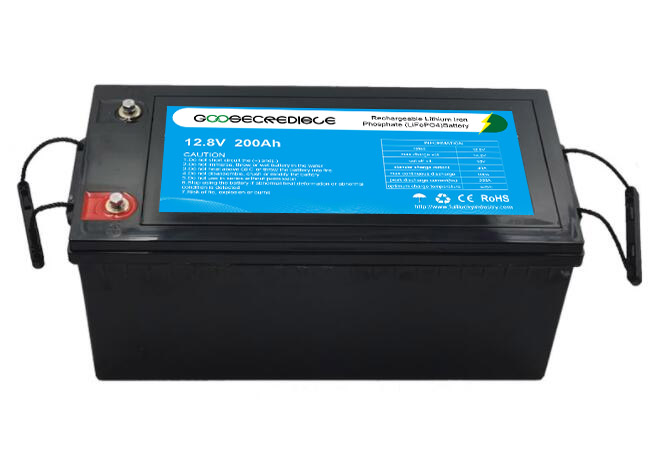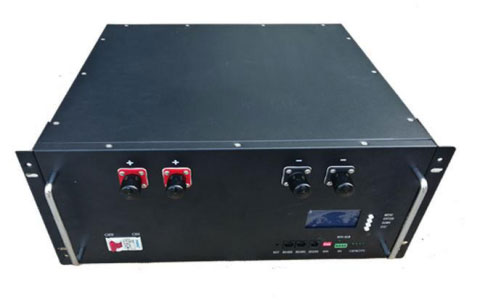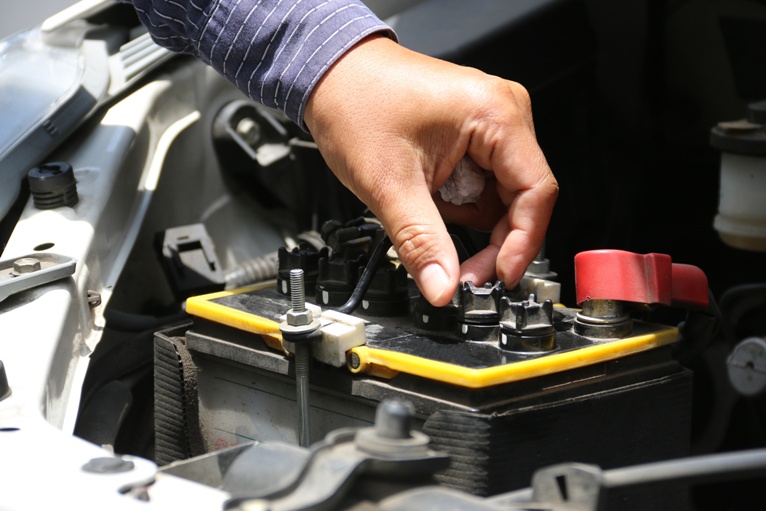Understanding the Lifespan and Performance of LiFePO4 Rechargeable Batteries
LiFePO4 rechargeable batteries have been growing in popularity for a variety of applications, particularly in electronic devices and transportation. Understanding the lifespan and performance of LiFePO4 batteries is crucial for making an informed decision on whether they are the right choice for your needs.
LiFePO4 batteries have a longer lifespan compared to other rechargeable batteries, such as lithium-ion batteries, due to their superior chemistry. They can last up to 10 years with regular use and proper maintenance, which makes them a reliable choice for long-term use. In addition, LiFePO4 batteries have a higher discharge rate, which allows them to handle high currents without damage, making them ideal for high-drain devices like power tools.
Another benefit of LiFePO4 batteries is their safety. They are less prone to overheating and fires compared to other lithium-based batteries, such as lithium-ion or lithium-polymer batteries. This is due to their stable chemistry, which makes them less likely to experience thermal runaway or other safety hazards.
In terms of performance, LiFePO4 batteries are known for their high energy density, meaning they can store more energy in a smaller space compared to other battery types. This makes them an ideal choice for devices that require long battery life but have limited space for a battery, such as smartphones, laptops, and other portable electronics.
LiFePO4 batteries also perform well in extreme temperatures, making them suitable for use in a variety of environments. They can operate at temperatures as low as -20°C and as high as 60°C, which makes them a reliable choice for outdoor and industrial applications.
Lastly, LiFePO4 batteries are an environmentally friendly option. They do not contain heavy metals, such as lead or cadmium, which can be harmful to the environment. Additionally, they are recyclable, which reduces the amount of electronic waste generated by the use of disposable batteries.
Overall, LiFePO4 rechargeable batteries offer numerous advantages over other rechargeable batteries in terms of lifespan, safety, performance, versatility, and environmental friendliness. Understanding these benefits can help you make an informed decision on whether they are the right choice for your needs.
Time: 2023-11-2
The advancement of technology has always played a crucial role in military operations. From the invention of gunpowder to the development of nuclear weapons, every breakthrough has had a significant impact on warfare. In recent years, another technological innovation has emerged that is revolutionizing the power supply of military equipment - the lithium battery. Lithium batteries, also known as Li-ion batteries, have gained popularity due to their high energy density and long lifespan. These batteries are lighter and more compact compared to traditional lead-acid batteries, making them ideal for military applications. They have become an essential power source for various military devices such as radios, night vision goggles, unmanned aerial vehicles (UAVs), and even electric vehicles used in the military. One of the key advantages of lithium batteries in military equipment is their ability to provide a stable and reliable power supply. In critical situations, it is vital for military personnel to have uninterrupted access to power for their equipment. Unlike traditional batteries that lose power over time, lithium batteries discharge power at a consistent rate until they are almost completely depleted. This feature ensures that military equipment can perform optimally for extended periods without the need for constant recharging or battery replacement. Furthermore, lithium batteries offer a significant weight reduction compared to conventional batteries, which is of utmost importance in military operations. Soldiers are often required to carry heavy loads, and any reduction in weight can greatly enhance their mobility and endurance. By incorporating lithium batteries...
Time: 2023-3-1
China Lithium starter battery suppliers can offer a range of benefits to vehicle owners looking for an upgrade from traditional lead-acid batteries. Lithium starter batteries have been gaining popularity in recent years due to their superior performance and durability, and China is quickly becoming a leading supplier of these advanced batteries. Here are some ways in which a China Lithium starter battery supplier can help boost your vehicle's performance: Lightweight and Compact Design: Lithium starter batteries are significantly lighter and more compact than traditional lead-acid batteries. This means that they can reduce the overall weight of your vehicle, leading to improved fuel efficiency and handling. Increased Power and Performance: Lithium starter batteries are capable of delivering higher levels of power and performance compared to traditional lead-acid batteries. This means faster engine starts, more consistent power output, and improved overall performance. Improved Reliability: Lithium starter batteries are known for their high reliability and long service life. They are less prone to failure due to internal corrosion or other issues that can affect traditional lead-acid batteries, ensuring that your vehicle starts when you need it to. Environmentally Friendly: Lithium starter batteries are more environmentally friendly than traditional lead-acid batteries, as they do not contain toxic chemicals and are easier to recycle. This makes them an ideal choice for eco-conscious vehicle owners. Cost-Effective: While lithium starter batteries may have a higher upfront cost compared to traditional lead-acid batteries, their longer service life and improved performance can ultimately...
Time: 2024-4-9
do you know? Industrial batteries are no longer the old-fashioned thing they used to be. They are undergoing a major innovation! This innovation makes power flow like a rolling river. Industrial automation, efficiency soars Imagine that robots and production lines in factories no longer “break down” due to battery problems. New industrial batteries have sufficient energy and good endurance, allowing automated equipment to work stably for a long time, and production efficiency to rise rapidly. Electric transportation, travel further Industrial transportation vehicles such as electric forklifts and electric trucks used to make people worry about insufficient power and unable to travel far. Well now, new industrial batteries have greatly extended their cruising range, greatly shortened their charging time, and made them more exciting to work with! Energy storage to meet unexpected needs Although renewable energy is good, how to store it is a big problem. Industrial batteries are becoming more and more popular as energy storage experts. They can store energy efficiently and provide power to key equipment at critical moments to ensure uninterrupted production. Smart grid, flexible dispatch The smart grid is a smart brain, and industrial batteries are its right-hand man. With the energy storage support of industrial batteries, smart grids can better dispatch power resources, make energy utilization more efficient, and make the grid more stable. Green environmental protection, sustainable development Industrial battery innovation not only provides more power, but also makes it more environmentally friendly. The new battery uses environmentally friendly materials,...
Time: 2023-5-24
Introduction: Our 12V 100Ah LiFePO4 battery is the perfect solution for powering up your devices efficiently. Whether you're using it for your RV, boat, or solar panel system, this battery is designed to provide reliable and consistent performance. Features: 1. High energy density: Our LiFePO4 battery has a higher energy density than other batteries, which means it can store more energy in a smaller space. This makes it ideal for use in applications where space is at a premium. 2. Long lifespan: With a lifespan of up to 10 years, our LiFePO4 battery is designed to last longer than other batteries. This means you'll save money in the long run by not having to replace your battery as frequently. 3. Fast charging: Our LiFePO4 battery can be charged quickly, which means you can spend less time waiting for your battery to charge and more time using your devices. 4. Safe and reliable: Our LiFePO4 battery is designed with safety in mind. It has built-in protection against overcharging, over-discharging, and short circuits, which means you can use it with confidence. Benefits: 1. Increased efficiency: Our LiFePO4 battery is designed to provide reliable and consistent performance, which means your devices will run more efficiently. This can save you money on energy costs and extend the life of your devices. 2. Reduced maintenance: With a long lifespan and built-in safety features, our LiFePO4 battery requires less maintenance than other batteries. This means you can spend...
Time: 2023-3-3
Wholesale LiFePO4 car battery suppliers can provide you with quality products for all your energy needs. Lithium Iron Phosphate (LiFePO4) batteries have become increasingly popular for use in electric vehicles due to their high energy density, long lifespan, and safety features. When choosing a wholesale LiFePO4 car battery supplier, it's essential to consider their reputation for producing high-quality batteries. You want to ensure that the supplier you choose has a good track record for providing reliable, safe, and durable batteries that will perform well in your electric vehicle. Another key factor to consider when choosing a wholesale LiFePO4 car battery supplier is their commitment to quality control. A reputable supplier should have a robust quality control process in place to ensure that each battery they produce meets strict standards for safety, performance, and longevity. Wholesale LiFePO4 car battery suppliers can help businesses go green by providing quality batteries that are designed for electric vehicles. These batteries are reliable and efficient, which helps to reduce the environmental impact of using traditional fuel sources. In addition to quality control, it's also important to consider the supplier's pricing, delivery times, and customer service. You want to work with a supplier who offers competitive pricing, reliable delivery, and responsive customer service to ensure that you have the support you need to keep your electric vehicle running smoothly. Overall, choosing the right wholesale LiFePO4 car battery supplier can make all the difference in the performance and longevity of your...
Time: 2023-10-21
The demand for energy is increasing at an unprecedented rate. The traditional centralized energy distribution system is struggling to meet this demand and is proving to be inefficient and unsustainable. However, the emergence of smart grids and lithium batteries is revolutionizing energy distribution, offering a more efficient, reliable, and environmentally friendly solution. Smart grids, also known as intelligent grids, are a modernized version of the traditional electrical grid. They incorporate advanced communication and control technologies that enable the two-way flow of electricity and information between suppliers and consumers. Unlike the conventional grid, which operates on a one-way flow of electricity from power plants to consumers, smart grids allow for bidirectional energy flow. This means that consumers can also become energy producers by generating electricity through renewable sources such as solar panels or wind turbines and feeding it back into the grid. One of the key advantages of smart grids is their ability to balance the supply and demand of electricity in real-time. By integrating smart meters, sensors, and automation systems, smart grids can monitor and control the flow of electricity, ensuring that supply matches demand at any given moment. This not only reduces the risk of blackouts and brownouts but also optimizes the utilization of existing energy resources. For instance, during periods of low demand, excess electricity generated by renewable sources can be stored in lithium batteries for later use, rather than being wasted. Lithium batteries, often referred to as the holy grail of energy storage, have...
Time: 2023-9-7
Where technology has become an integral part of our daily lives, the need for portable energy solutions has never been greater. Whether it's our smartphones, laptops, or electric vehicles, we rely heavily on batteries to power these devices. One such battery that has revolutionized the portable energy industry is the Lithium Ion Battery. The Lithium Ion Battery, commonly known as Li-ion battery, is a rechargeable battery that has gained popularity due to its high energy density and long-lasting performance. It is widely used in various applications, including consumer electronics, electric vehicles, and renewable energy systems. One of the main advantages of the Li-ion battery is its high energy density. This means that it can store a large amount of energy in a relatively small and lightweight package. Compared to other types of batteries, such as lead-acid or nickel-cadmium batteries, Li-ion batteries have a significantly higher energy density, making them ideal for portable devices that require long-lasting power. Another advantage of Li-ion batteries is their low self-discharge rate. Unlike other rechargeable batteries, Li-ion batteries have a lower self-discharge rate, which means they can retain their charge for a longer period when not in use. This makes them a preferred choice for devices that are used infrequently or for emergency backup power. The high energy efficiency of Li-ion batteries is another reason for their popularity. These batteries can convert a high percentage of the stored energy into usable power, resulting in longer battery life and improved overall performance....
Time: 2023-6-27
If you've ever experienced a dead battery while out on the road, you know how frustrating and inconvenient it can be. It can happen at the most unexpected time, leaving you stranded and unable to start your vehicle. That's where an emergency starter battery comes in handy. An emergency starter battery, also known as a jump starter, is a portable device that provides a quick boost of power to a dead battery. It works by using its own battery power to jump-start your vehicle's battery, allowing you to start your engine and get back on the road. There are many different types of emergency starter batteries available on the market, ranging from small, handheld devices to larger, heavy-duty units. Some are designed specifically for cars, while others can be used for trucks, boats, and other vehicles. One of the main advantages of using an emergency starter battery is that it's incredibly easy to use. All you need to do is connect the device to your vehicle's battery using the provided cables, and then turn on the power. The device will then transfer power to your battery, allowing you to start your engine. Another advantage of using an emergency starter battery is that it's a much safer and more reliable option than trying to jump-start your car using another vehicle. When you jump-start a car using another vehicle, there's always the risk of damaging your battery or electrical system. With an emergency starter battery, however, you can...




















